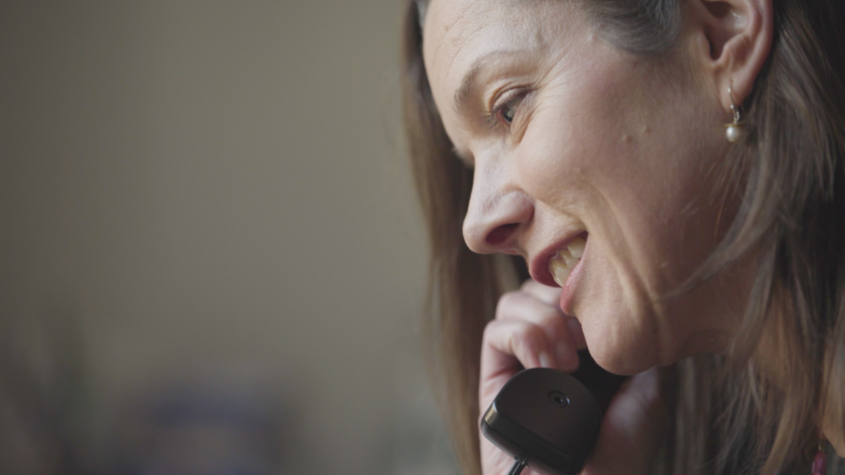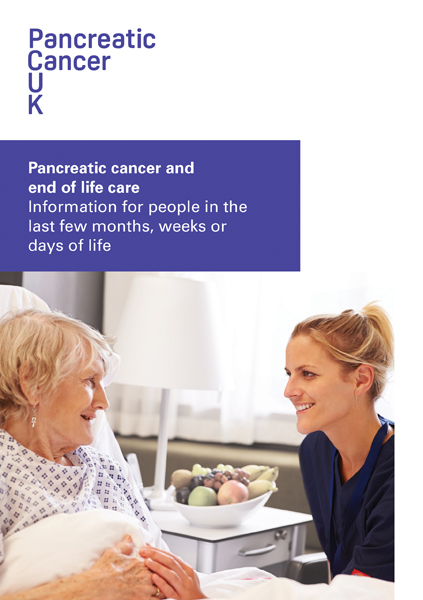Speak to our nurses
You can speak to our specialist nurses on our Support Line with any questions about bowel problems or other symptoms at the end of life.
Pancreatic cancer and treatments can cause bowel problems, such as:
Speak to your doctor or nurse if you have any bowel problems. They can work out what is causing it, and find ways to help manage it.
Constipation can be very uncomfortable. It can cause bloating, pain and make you feel or be sick.
There are different things that can cause constipation. You may be more likely to get constipation if you are not moving around or eating much, or are dehydrated. It can help to drink plenty of fluids, if you can. Try having small, frequent sips.
You may also get constipation if you are taking strong painkillers called opioids, such as morphine. You should be given medicines called laxatives to take with opioids. These prevent constipation. If you are able to, take the laxatives regularly. If you are unable to take laxatives, it is important to continue taking the opioid painkillers, as your medical team recommend.
As you approach the end of your life, your doctors and nurses may focus more on managing constipation to help you feel comfortable and less on treating the cause. Speak to your doctor or nurse if you have constipation.
Diarrhoea can mean you need to rush to the toilet, and can cause stomach cramps. It can be unpleasant. There are different things that can cause it, such as the cancer, some medicines, or an infection.
Sometimes if you have constipation, some watery poo which looks like diarrhoea can leak out. This is called overflow diarrhoea. If you are taking opioid painkillers and think you have diarrhoea, keep taking the laxatives you will have been given to prevent constipation, and speak to your nurse. They can work out what is causing it and how to manage it. Don’t stop taking the laxatives and don’t take any medicines to stop diarrhoea without speaking to your doctor or nurse.
If your diarrhoea doesn’t get better or you have diarrhoea several times a day, tell your GP or nurse. They will work out what’s causing it, and give you medicine to stop it.
If you have diarrhoea, try to keep your bottom clean using wipes or damp cotton wool. Wash the area using gentle soap and water, and pat dry. Wear cotton underwear and loose-fitting clothes. If your bottom is sore, your doctor or nurse may be able to recommend a cream to use. Try to drink plenty of fluids so you don’t get dehydrated.
If you are dehydrated you might have dark coloured pee, headaches, feel thirsty, and feel dizzy or light headed. Speak to your doctor or nurse if you think you might be dehydrated, or if you have diarrhoea and have any of these signs. They may be able to treat the dehydration, or help you get more fluids if you are not drinking as much as you normally would.
Steatorrhoea is caused by fat in your poo. Your poo may be pale, oily, smell horrible and be difficult to flush down the toilet. You may get it if your body can’t digest the fat in your food properly. Pancreatic enzymes can help with steatorrhoea.
You can speak to our specialist nurses on our Support Line with any questions about bowel problems or other symptoms at the end of life.

To read more about bowel problems towards the end of life, download our booklet, Pancreatic cancer and end of life care: information for people in the last months, weeks and days of life.
You can also order a physical copy.

Published April 2021
Review date April 2024